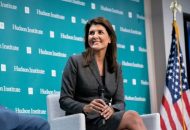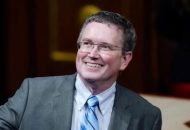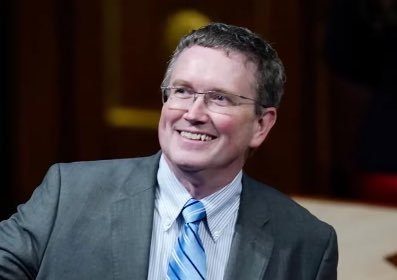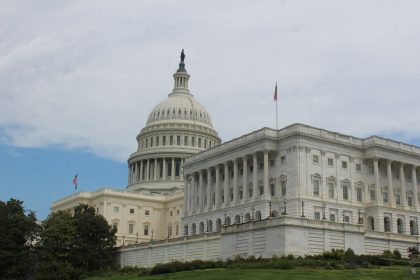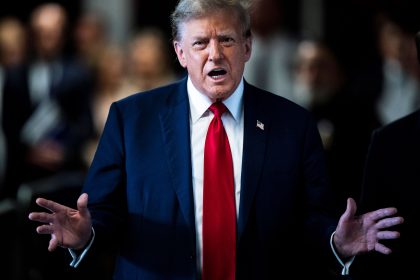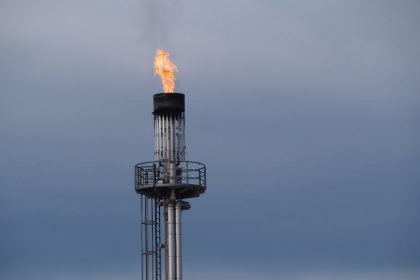Mueller and His Investigation Still Largely An Enigma On Eve of Report’s Release
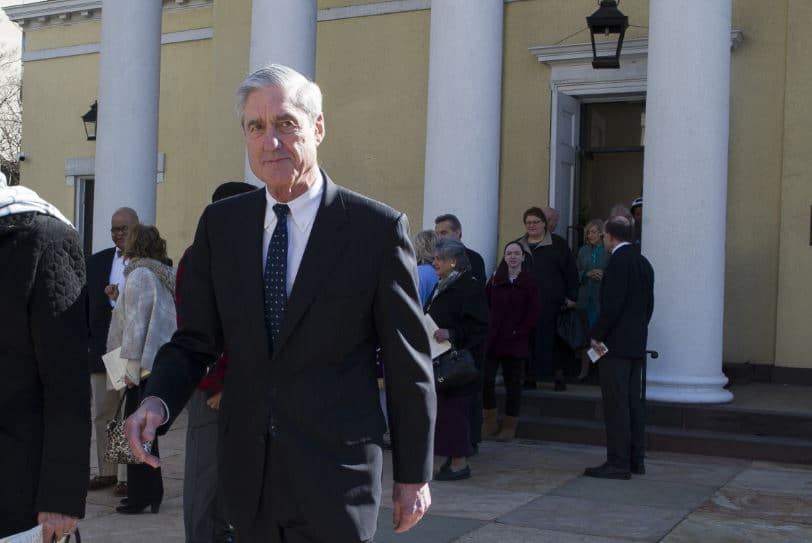
On Thursday, the world will get its first real, if redacted, look at the final report detailing Special Counsel Robert Mueller’s investigation into Russian interference in the 2016 election and the Trump campaign’s alleged collusion with those activities.
Throughout it all, Mueller himself has remained stoically silent. Given the amount of loud and often rude speculation that has surrounded his work, his ability to remain mum throughout it all has seemed at times almost herculean.
It’s enough to make one wonder what exactly the rules of engagement are for a special counsel for engaging Congress and the general public.
In search of an answer, The Well News first turned to Peter Carr, Mueller’s spokesman, who now fields inquiries about the investigation from an office at the Justice Department.
Over the investigation, Carr has proven almost as circumspect as his boss, offering almost always a friendly but firm “no comment” to any reporter’s question.
True to form, on Tuesday, he directed The Well News to a website, that of the Cornell Law School, and to a page detailing the federal law applying to offices of independent counsel and the general powers of the special counsel.
Generally speaking, the law says the special counsel must comply with the Federal Rules of Criminal Procedure when it comes to the release of grand jury information, and “the rules, regulations, procedures, practices and policies of the Department of Justice” when it comes to any other interaction.
Those rules are premised on the notion that much of the Justice Department’s work involves “non-public, sensitive matters” and that disseminating information about them could violate “federal laws, employee non-disclosure agreements, and individual privacy rights; put a witness or law enforcement officer in danger; jeopardize an investigation or case; prejudice the rights of a defendant; or unfairly damage the reputation of a person.”
“DOJ personnel should presume that non-public, sensitive information obtained in connection with work is protected from disclosure, except as needed to fulfill official duties of DOJ personnel, and as allowed by court order, statutory or regulatory prescription, or case law and rules governing criminal and civil discovery,” the Justice Department guidelines say. “Other than as necessary to fulfill DOJ official duties, disclosure of such information to anyone, including to family members, friends, or even colleagues, is prohibited and could lead to disciplinary action. Unauthorized disclosures of sensitive personal or proprietary information could lead to criminal prosecution or administrative action.”
There are no explicit guidelines for a special counsel’s engagement with Congress, although federal law places the responsibility for the public release of investigation reports squarely on the attorney general.
“All other releases of information by any Department of Justice employee, including the Special Counsel and staff, concerning matters handled by Special Counsels shall be governed by the generally applicable Departmental guidelines concerning public comment with respect to any criminal investigation, and relevant law,” the law says.
In fact, the only time Mueller’s team publicly commented on anything to do with the investigation was in January, after Buzzfeed published a story alleging that President Trump directed attorney Michael Cohen to lie on the president’s behalf to Congress about the Trump Tower project in Moscow.
In a statement that shocked many simply due to its existence, the special counsel’s office said, “BuzzFeed’s description of specific statements to the special counsel’s office, and characterization of documents and testimony obtained by this office, regarding Michael Cohen’s congressional testimony are not accurate.”
Though no one in the Mueller camp explained the rationale behind the extraordinary statement, it was generally agreed that the potential consequences of the Buzzfeed report were so profound that the special counsel’s office felt it had no other choice.
Even in that case, Mueller’s team complied with a Justice Department directive for dealing with the press that states, “in such cases, communications with the media should be limited to the information contained in publicly available material.”
The Mueller approach is a marked contrast to that taken by former independent Counsel Kenneth Starr, whose investigations into the various and wide-ranging activities of President Bill Clinton culminated in the Monica Lewinsky scandal.
Starr and his office did talk to the press, and the independent counsel found himself in a firestorm of controversy when, in June 1998, a new magazine, Brill’s Content, published an extensive article titled “Pressgate,” charging Starr’s investigators had been the source of much of the information for reporters regarding the grand jury proceedings about the Lewinsky scandal.
The self-described media watchdog publication even went so far as to assert that as a result of this sharing of information, Starr may have violated federal law or ethical and prosecutorial guidelines.
The article quoted Starr identifying three reporters, Michael Isikoff of Newsweek, Susan Schmidt of the Washington Post and Jackie Judd of ABC News, as journalists to whom his deputy, Jackie Bennett had talked “extensively” about the case.
Asked whether these leaks, if not illegal, still violated Justice Department and American Bar Association guidelines against leaks of pending investigations, Starr was quoted as saying, “That would be true except in case of a situation where what we are doing is countering misinformation that is being spread about our investigation in order to discredit our office and our dedicated career prosecutors.”
“I think it is our obligation to counter that kind of misinformation,” he said. “And it is our obligation to engender public confidence in the work of this office.”
In a scathing, 19-page letter sent to publisher Steven Brill the day the article appeared, Starr accused the magazine of taking statements he made about confidentiality obligations “completely out of context” under the Federal Rule of Criminal Procedure and ” assumed it has been my practice, or the practice of others in my Office, to release to media the contents of statements made by witnesses outside of the grand jury.
“You are mistaken,” Starr said. “Let me repeat categorically: The OIC does not release grand jury material directly or indirectly, on the record or off the record; the OIC does not violate Department of Justice policy or applicable ethical guidelines; and the OIC does not and has not released information provided by witnesses during witness interviews, except as authorized by law.”
But Starr also maintained that he and his staff were “authorized to disclose publicly information about a variety of legal and policy issues that confront the office.”
He then provided examples of some of the issues “we not only can – but should – disclose.” These included:
- The anticipated time frame of a particular aspect of our investigation;
- Issues related to staffing and expenditures;
- The basis of our jurisdiction over particular issues;
- Various elements of the independent counsel statute that impose requirements and restrictions on the office in general and on the independent counsel in particular.
Starr went on to say that to the extent the matters are not under seal, his office could and should explain the legal positions the office took, “particularly when those issues become the subject of public debate.”
“For example, our legal views with respect to the law of certain privileges, the law of civil contempt, the law of conspiracy, perjury, obstruction of justice, and witness intimidation are all proper topics for discussion with reporters,” Starr said.
“We should discuss the causes of delay in our investigation. We should correct public misinformation about the legal views, strategy, and tactics of this office to the extent we can without interfering with the investigation or violating Rule 6(e) [of the Federal Rule of Criminal Procedure].
“Our dealings with other public and government agencies are proper topics of discussion with reporters,” Starr continued. “We should ensure that the media are informed of standard prosecutorial policy and practice when we are asked about issues such as immunity, plea bargains, and target letters and the like. And of course, we can discuss with the media our policy with respect to dealing with the media.”
“The idea that we (and all federal prosecutors) should never talk to reporters about any of these issues – a suggestion that is at least implicit in your article – is wrong and, if followed, would be a disservice to the public that is entitled to know what its government is doing with its money, authority, and resources,” the independent counsel said, adding, “What we must avoid, and what we do avoid, is discussion of information sought from or provided by witnesses – whether in the form of investigative interviews, grand jury appearances, or documents provided to this Office.”
In the years since, Starr has largely taken the position that his investigation is largely a closed chapter in the nation’s history.
He has spoken about it on occasion, mostly, as he explained to journalist Peter Hossli in 2008, because he felt “that an important part of accountability was to be able to talk about the independent counsel experience.”
Hossli then asked what Starr learned from the experience.
“The Independent Counsel experience brought home powerfully the need for structure and accountability in our governmental system of separated powers,” Starr said. “The mechanism suffered from a severe design flaw so that, when controversy inevitably erupted, no one in authority was at hand to defend the institution in the vital arena of public opinion.”
Mueller filed his a nearly 400-page report on March 22 after nearly two years of work, and since then Attorney General William Barr and a team of Justice Department lawyers have been redacting grand jury testimony and information that could compromise ongoing investigations.
Even with that, Washington is bracing for the release of formerly confidential information that could prove damaging to President Donald Trump. This despite Barr’s assurances in a four-page letter sent to Congress on March 24 that Mueller did not establish the existence of a criminal conspiracy between the president’s campaign and the Russian government.
Sure to be particularly worked over in the days ahead is Barr’s claim that Mueller reached no definitive conclusion on whether Trump obstructed justice by trying to interfere with the probe.
Famously, after reviewing the report with Deputy Attorney General Rod Rosenstein, Barr announced that “while this report does not conclude that the President committed a crime, it also does not exonerate him.”
In the absence of that alleged lack of conclusion, Barr said he determined the evidence contained in the report “was not sufficient to determine that the president committed an obstruction-of-justice offense.”
House Democrats immediately pledged to fight for access to an unredacted version of the report and have vowed to subpoena the Justice Department for it if necessary.









